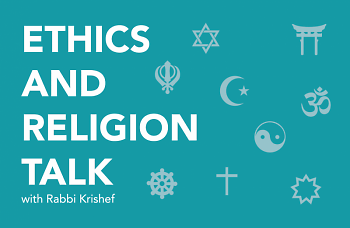Janet H. asks, “The recent column on happiness/unhappiness prompts a further question: Is it happiness humans need, or is it joy? Happiness is fleeting, episodic, emotional. Joy on the other hand is an internal baseline which can coexist with sadness, disappointment and struggle. Joy is a spiritual condition, a sustaining sense that at the end of the day, all will be well.”
The Rev. Sandra Nikkel, head pastor of Conklin Reformed Church, responds:
“You're right in saying that happiness is fleeting and that joy can coexist with sadness, disappointment, and struggle. Differentiating between the two can stop the frantic pursuit of things that people are seeking today--thinking they will bring them happiness--but, fame, Money, drugs, alcohol, and power bring only fleeting happiness. Joy, on the other hand, will stay no matter the circumstances. The caveat is to understand where joy comes from. Joy comes from cultivating a relationship with Jesus Christ who gave his life so that we could enjoy all the benefits of the salvation he gives--which includes joy. He is the source of joy that never runs out!”
The Reverend Colleen Squires, minister at All Souls Community Church of West Michigan, a Unitarian Universalist Congregation, responds:
“To fully understand the breath of life people need to experience many feelings. I understand joy and happiness are different emotions, but both are part of the human experience. I believe if we are able to drill down to the root of our feelings, responses or reactions at the core is either Love or Fear. That all emotions have Love or Fear at their root.”
Linda Knieriemen, Senior Pastor at First Presbyterian Church in Holland, responds:
“A life of no joy and no happiness has no appeal. Humans need to be able to access both, but joy is the more necessary for human flourishing and contentment because happiness is fleeting and dependent on circumstances.
“This song by the Medical Mission Sisters comes to mind:
I saw raindrops on my window, joy is like the rain.
Laughter runs across my pane, slips away and comes again.
Joy is like the rain.
I saw Christ in wind and thunder, joy is tried by storm.
Christ asleep within my boat, whipped by wind, yet still afloat.
Joy is tried by storm.”
Fred Stella, the Pracharak (Outreach Minister) for the West Michigan Hindu Temple, responds:
“The reader hits upon a very important point. Hinduism acknowledges that in this world of relativity we cannot experience A without experiencing B. In Chapter VII of the Bhagavad Gita it states:
‘By passion for the pairs of opposites, By those twain snares of Like and Dislike, Prince! All creatures live bewildered, save some few; Who, quit of sins, holy in act, informed, freed from the opposites, and fixed in faith, Cleave unto Me.’
“The word ‘Ananda’ in Sanskrit indicates a sense of joy that has no opposite. While we are in the body we are likely to go through life events that are both happy and sad. But to those who have cultivated Ananda through spiritual practices are able have it run like an undercurrent in their consciousness. To attain this exalted state is no easy feat. For those who do, it is not surprising to see them shed great tears of compassion for suffering humanity. Yet the conviction that all pain is temporary allows them to maintain their bliss.”
The Rev. Steven Manskar, pastor of Trinity United Methodist Church in Grand Rapids, responds:
“I think humans need both happiness and joy. One of the founding documents of this nation, The Declaration of Independence, states, “We hold these truths to be self-evident, that all men are created equal, that they are endowed by their Creator with certain unalienable Rights, that among these are Life, Liberty and the pursuit of Happiness.” Certainly, God desires happiness for all people. It is the fruit of freedom.
“Joy, on the other hand, is a fruit of faith. The Apostle Paul believed joy is a “fruit of the Spirit” along with love, peace, patience, kindness, generosity, faithfulness, gentleness, and self-control. These are habitual characteristics or temperaments born of faith in God. They reflect God’s character.
“Joy is a form of happiness that is grounded in faith that is more than belief in God. Joy comes when faith is a vital relationship with God. It is confidence in God’s love and forgiveness. Joy becomes part of you as you cooperate with God’s working in you to repair and heal the damage sin has done to the image of God.
“Joy is accompanied by hope. It is confidence that God is actively working to bring shalom to all people and creation. And that you are included in what God is up to in the world.
“Happiness is comes from joy. Without joy, there can be no true happiness. Joy and happiness come when we love God with all our heart, soul, and mind; and love who and what God loves. “
This column answers questions of Ethics and Religion by submitting them to a multi-faith panel of spiritual leaders in the Grand Rapids area. We’d love to hear about the ordinary ethical questions that come up in the course of your day as well as any questions of religion that you’ve wondered about. Tell us how you resolved an ethical dilemma and see how members of the Ethics and Religion Talk panel would have handled the same situation. Please send your questions to [email protected].
The Rapidian, a program of the 501(c)3 nonprofit Community Media Center, relies on the community’s support to help cover the cost of training reporters and publishing content.
We need your help.
If each of our readers and content creators who values this community platform help support its creation and maintenance, The Rapidian can continue to educate and facilitate a conversation around issues for years to come.
Please support The Rapidian and make a contribution today.
